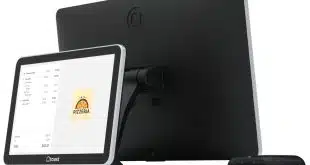While the recently unveiled joint venture between Bank of America Corp. and Wells Fargo Co. to create a common platform to process automated clearing house transactions isn't scheduled to become operational until 2010, the venture's very announcement by two of the biggest financial institutions in the country has sparked industry speculation about its ambitions and plans beyond handling ACH volume for the two banks. At a minimum, some observers see the venture, called Pariter Solutions LLC, turning into a so-called ACH operator, an entity that handles network traffic for the ACH. Beyond that, say some, may lie ambitions to process other types of electronic payments. For the record, the two top executives for Pariter insist their only plan for the time being is to focus on getting their platform launched and making sure it's capable of switching ACH transactions for its two parent banks (Digital Transactions News, May 20). BofA is the No. 2 originator of ACH transactions in the country, followed by Wells; among receiving institutions, BofA is No. 1, while Wells ranks second. As a result, the two banks likely generate a significant volume of what would, under Pariter, become on-us transactions, or payments initiated by customers of one of the banks and drawn on accounts held by the other. Numbers showing how much this volume comes to were not immediately available. By removing this volume from the ACH network, Pariter could have an impact on the two existing ACH operators, the Federal Reserve and the Electronic Payments Network, which is operated by New York City-based The Clearing House Payments Co. LLC. But some experts are convinced Pariter has broader ambitions than handling on-us ACH transactions for its two prominent clients. These may include adding more banks and becoming an operator itself. “If it can [process] for two banks, it can process for 3,000,” says Larry De Palma, president and chief executive of Brentwood, Tenn.-based consultancy TDG-Phenix Inc. By becoming an operator, Pariter would not only shave its cost per transaction by adding more volume, but it would position itself to collect fees from client banks for handling their transactions, De Palma says. Operator fees are fractions of a penny per transaction. “If anybody's going to do it and do it right, it would be [BofA and Wells],” says De Palma. Jennifer Roth, senior analyst in global payments at Needham, Mass., consultancy TowerGroup Inc., agrees this is a likely ambition for Pariter, though she adds that performing the functions of an ACH operator is not as simple as flipping on a switch. “If this platform is to be built out enough to handle net settlement, then there's more to be done, and the complexity will increase as they add more institutions,” she says. She argues the company will likely move toward operator status in stages, starting with the two owners, then adding banks that Wells and BofA do correspondent work for, then finally opening the platform to all receiving and originating banks. If this proves to be the case, it will represent the first competition the Fed and EPN have encountered since Visa USA exited the business in 2002. Roth, indeed, argues Pariter is also likely to open its platform to other forms of electronic payment, again in a bid to build volume. She suggests the likely candidates are wire transfers and image-exchange for checks, though the latter function is already handled by a company, Viewpointe Archive Services LLC, in which BofA holds an equity stake. “It was very clear to me that this is a high-volume transaction-processing platform, not an ACH transaction processing platform,” she says, referring to conversations she's had with Wells executives. Pariter will begin testing transactions next year. Charlotte, N.C.-based BofA will migrate to the new platform in the first half of 2010, while San Francisco-based Wells will move to it in the second half, chief executive Stephanie Sturgis-Griffin and chief operating officer Walter Taylor told Digital Transactions News last week. When it goes live, the company will be the nation's largest processor of ACH payments. Each bank owns a half interest in the venture. Pariter, which in Latin means “together,” will rely on an existing Wells platform, enhancing it for use by both banks. The company will draw on resources from both of its owners, including personnel.
Check Also
Toast Links Dining to Instacart’s Marketplace; Ingenico Launches Its 360 Platform Plus AXIUM Terminals
Toast Inc. announced early Tuesday it is partnering with online grocery-delivery and-pickup service Instacart to …





